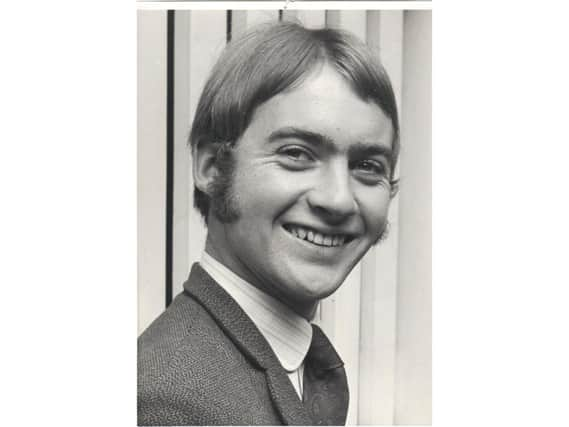LOOKING BACK - March 26, 2020 edition


He was a household name, a popular bandleader who brought happiness to many, despite the war clouds gathering over Europe. Former Rugby Advertiser reporter John Phillpott remembers Tom Ward…
My various writings on the Rugby music scene during the 1960s will undoubtedly have stirred quite a few readers’ memories. For many of us baby boomers now drawing our pensions, that increasingly distant decade must seem like a golden age.
Advertisement
Hide AdAdvertisement
Hide AdYes, it was a time of seemingly limitless employment possibilities and endless opportunities, all of which seem to stand in stark contrast to the many problems facing young people nowadays.
But it wasn’t all plain sailing. We faced the prospect of superpower nuclear annihilation, just as the pre-war generation had lived in the shadow of Hitler’s tyranny.
And like their successors, the youngsters of the 1920s and 30s sought solace and distraction in the form of music and the theatre.
Rugby enjoyed a thriving entertainment scene in the years before the lights went out over Europe. And no one personified that happy state of affairs more than band leader Tom Ward.
Advertisement
Hide AdAdvertisement
Hide AdTom was a household name in Rugby, not only during the 1930s, but also into the subsequent decades.
His band was by far the most popular outfit in those days, playing Saturday night dances at venues such as St Peter’s Hall, the Brotherhood Hall, and elsewhere across Rugby and district.
My late father was a good friend of Tom’s and, for a while, played violin in his band. I can recall a picture of my Dad when he worked in Tom Ward’s band, sitting behind a music stand emblazoned with a large treble clef and clutching his fiddle.
It was classic shot, so typical of the period, but now regrettably lost. Sadly, Tom’s failing eyesight deteriorated over the years, resulting in the onset of total blindness.
Advertisement
Hide AdAdvertisement
Hide AdBy the 1960s, Tom and his wife Miriam had become licensees of the Alexandra Arms in James Street, Rugby. And it was here that I caught up with him one sunny afternoon some time in 1968.
Tom was making a bit of a musical comeback. He was producing the soundtrack and conducting the orchestra for Rugby Theatre’s forthcoming production of Rodgers and Hammerstein’s Oklahoma!
And I was intent of giving it a good spread on my show page in the Rugby Advertiser.
Well, I must say what a fascinating afternoon I had. Tom was an expert on the band music of the 20s and 30s and, once the interview was complete, he played me track after track from that unforgettable area.
Advertisement
Hide AdAdvertisement
Hide AdLew Stone, Al Bowly, Roy Fox, Mugsy Spanier… these scratchy 78rpm records seemed as fresh and vibrant as they must have been in those long lost days when the youngsters of the time danced the night away and old Adolf could go to hell.
In fact, that afternoon left me with an enduring lifelong affection for that type of music, even if rock, blues and soul would always remain deep in my heart.
Oklahoma! proved to be a great success. And from then on, I would often visit the Alexandra Arms to see Tom and Miriam, right up until the time I left Rugby to take up a job in Lancashire in the autumn of 1969…
After the war, a number of like-minded local people founded the Rugby Theatre. One of the leading lights was a Dr Raymond Owen. Another member of the group was my father, who helped in the creation of the theatre’s debut staging on December 5, 1949, of Fisherman’s Rest.
Advertisement
Hide AdAdvertisement
Hide AdMy Dad also played the part of Sir Thomas More in the theatre’s production of A Man for All Seasons in 1972. I have many happy memories of walking the few yards from the Advertiser offices to the theatre in Henry Street and reviewing the latest production for inclusion on my show page.
Today, the theatre is one of the best of its kind in Britain, with a glowing reputation for putting on supremely professional productions. Whenever I return to my old home town, I never fail to pay the place a visit.
Tom Ward was what we would now call ‘a legend’, these days a much over-used word, but in his case entirely deserving. And although you would have to be getting on a bit to remember him, there must still be some Rugby people who will recall a man whose memorable music instantly banished all those worries and woes away.
Footnote: John Phillpott’s third book is titled Go and Make the Tea, Boy! and is a memoir of his days on the Rugby Advertiser. It is being published later this year.